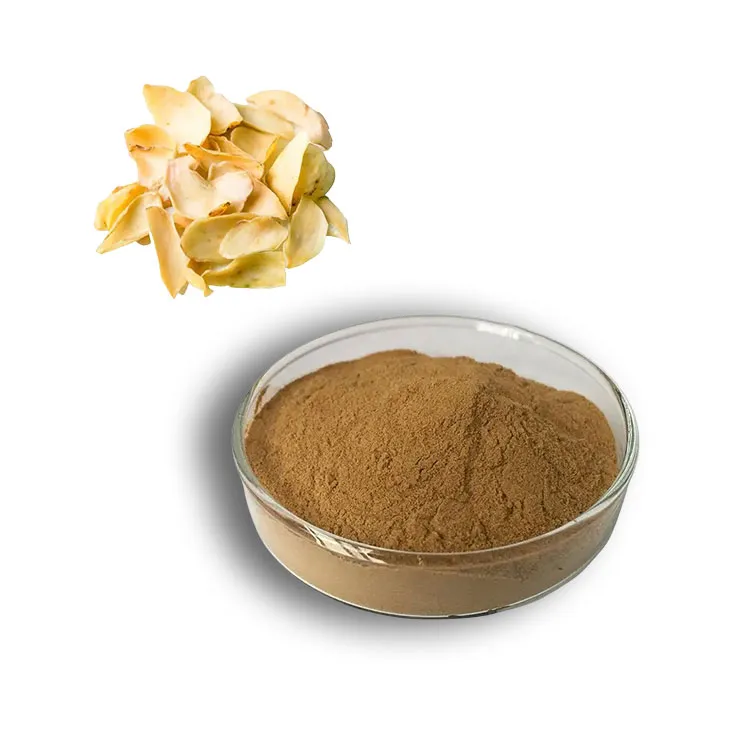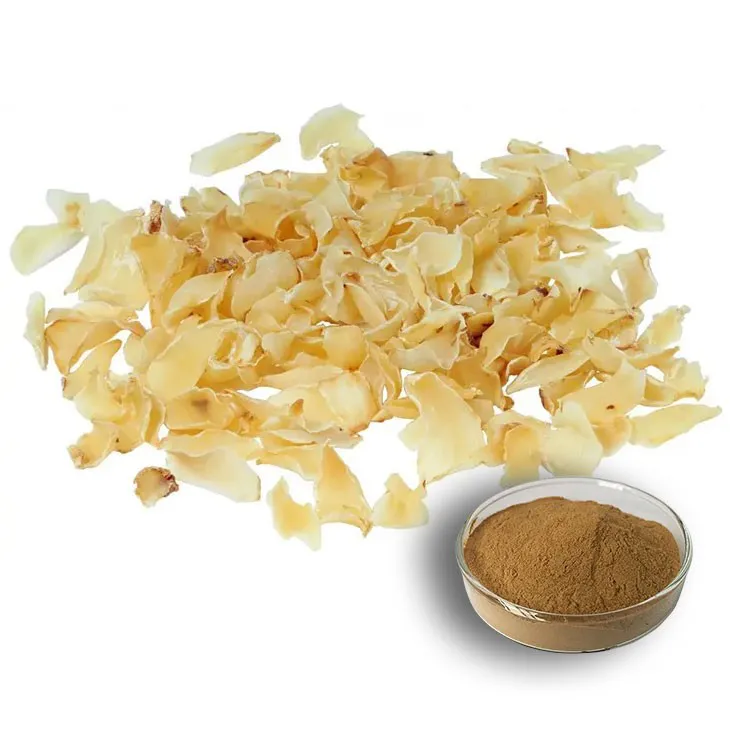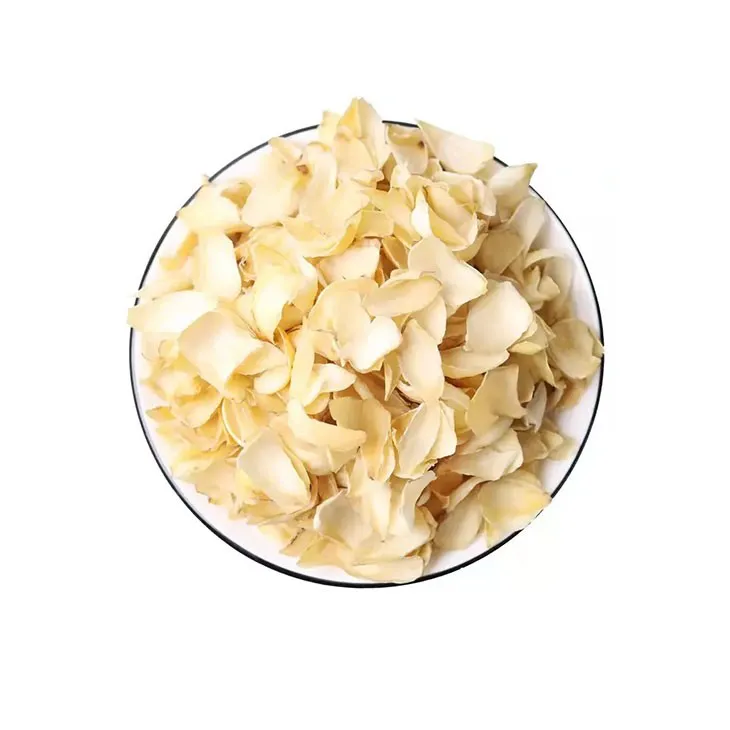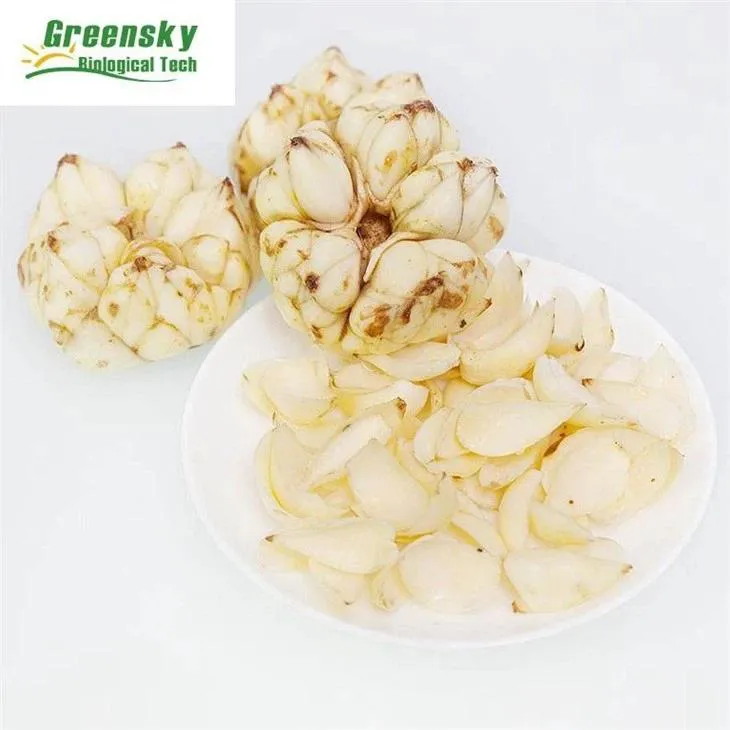- 0086-571-85302990
- sales@greenskybio.com
Lily Extract: Should You Use It for Skin Care?
2024-11-12

1. Introduction
In the ever - evolving world of skincare, new ingredients are constantly emerging, and Lily extract is one that has been making waves recently. With the promise of various skin - enhancing properties, it has caught the attention of both consumers and skincare manufacturers alike. But before you jump on the lily - extract bandwagon, it's crucial to understand what it really offers and whether it's suitable for your skin type. This article will take a comprehensive look at Lily extract in skincare, exploring its potential benefits, possible drawbacks, and considerations for different skin types.

2. What is Lily extract?
Lily extract is derived from different species of lilies, which are known for their beauty and fragrance in the botanical world. These extracts are obtained through various methods, such as solvent extraction or steam distillation, to capture the active compounds present in the lily plant.
The composition of lily extract is rich in a variety of substances. It contains flavonoids, which are known for their antioxidant properties. Antioxidants play a vital role in skin health as they can neutralize free radicals - unstable molecules that can damage skin cells and contribute to premature aging. Additionally, lily extract may also contain polysaccharides, which have the potential to improve skin hydration by attracting and retaining moisture.

3. Potential Benefits of Lily Extract for Skin Care
3.1 Skin Hydration
One of the most appealing aspects of lily extract for skincare is its potential to hydrate the skin. As mentioned earlier, the polysaccharides in lily extract can help the skin hold onto moisture. This is especially beneficial for those with dry skin types. When the skin is properly hydrated, it appears plumper, smoother, and more youthful. Dry skin can often look dull and flaky, but the use of products containing lily extract may help to combat these issues by providing a long - lasting source of hydration.
3.2 Anti - Aging Properties
The flavonoids in lily extract are powerful antioxidants. Free radicals are constantly bombarding our skin from environmental factors such as UV radiation, pollution, and cigarette smoke. These free radicals can break down collagen and elastin in the skin, which are the proteins responsible for maintaining skin's firmness and elasticity. By neutralizing free radicals, the flavonoids in lily extract can help to prevent premature aging signs such as wrinkles, fine lines, and sagging skin. Regular use of skincare products with lily extract may contribute to a more youthful complexion over time.
3.3 Soothing and Calming
Lily extract may also have soothing and calming properties for the skin. It can be beneficial for those with sensitive or irritated skin. The natural compounds in the extract may help to reduce redness and inflammation, making the skin feel more comfortable. This makes it a potentially good ingredient for those with skin conditions such as eczema or rosacea, although more research is needed in these specific areas.

4. Possible Drawbacks of Lily Extract
4.1 Allergic Reactions
Just like any other skincare ingredient, lily extract can cause allergic reactions in some individuals. People with sensitive skin or known allergies to plants in the lily family are at a higher risk. Allergic reactions may manifest as redness, itching, swelling, or hives on the skin. It's important to perform a patch test before using any new product containing lily extract, especially if you have a history of skin sensitivities.
4.2 Quality and Purity Variations
The quality and purity of lily extract can vary depending on the source and extraction methods used. Some products may contain lower - quality extracts or may be contaminated with other substances. This can affect the effectiveness of the extract and may also pose potential risks to the skin. It's advisable to choose skincare products from reputable brands that adhere to strict quality control standards to ensure you are getting a high - quality lily extract.

5. Considerations for Different Skin Types
5.1 Dry Skin
For those with dry skin, lily extract can be a great addition to the skincare routine. Its hydrating properties can provide much - needed moisture to the skin. Look for products like moisturizers or serums that contain lily extract. However, it's still important to use other hydrating ingredients in combination, such as hyaluronic acid and ceramides, to ensure comprehensive skin hydration.
5.2 Oily Skin
Oily - skin individuals may be hesitant to use products with lily extract due to concerns about adding more moisture and potentially making the skin oilier. However, the antioxidant properties of lily extract can still be beneficial for oily skin. It can help protect the skin from environmental damage, which can also affect oil production. Opt for lightweight formulations, such as gel - based moisturizers or water - based serums, that contain lily extract to avoid a heavy or greasy feeling.
5.3 Sensitive Skin
As mentioned earlier, lily extract may have soothing properties, but sensitive - skin types need to be cautious. Always perform a patch test first. If no adverse reactions occur, products with lily extract can be used sparingly. Look for products that are specifically formulated for sensitive skin and contain minimal additional ingredients that could potentially cause irritation.
5.4 Combination Skin
Combination skin can be a bit tricky when it comes to using lily extract. The T - zone (forehead, nose, and chin) may be oily, while the cheeks can be dry or normal. In this case, using different products with lily extract for different areas of the face may be a good approach. For example, a lightweight gel - type product for the T - zone and a more hydrating cream for the cheeks.
6. How to Incorporate Lily Extract into Your Skincare Routine
If you've decided that lily extract is suitable for your skin type, here are some ways to incorporate it into your skincare routine:
Cleansers: Some cleansers now contain lily extract. Using a lily - extract - containing cleanser can be a gentle way to start your skincare routine. It can help clean the skin while also providing some of the potential benefits of the extract, such as soothing the skin during the cleansing process.
Toners: Toners with lily extract can further hydrate and soothe the skin after cleansing. They can also help to balance the skin's pH level. Apply the toner to a cotton pad and gently sweep it over your face and neck.
Serums: Serums are concentrated formulations that can deliver a high dose of lily extract to the skin. They are usually applied after toning and before moisturizing. A few drops of a lily - extract - serum can penetrate deep into the skin, providing anti - aging and hydrating benefits.
Moisturizers: Moisturizers with lily extract are great for locking in moisture. Whether you have dry, oily, or combination skin, there are different types of moisturizers available with lily extract. For dry skin, a thicker, cream - based moisturizer may be more suitable, while for oily skin, a lightweight, oil - free option is better.
Masks: Lily - extract - containing masks can be used once or twice a week for an intensive treatment. They can deeply hydrate the skin, soothe inflammation, and give your skin an extra boost of the extract's beneficial compounds.
7. Conclusion
Lily extract has the potential to be a valuable addition to your skincare routine, offering benefits such as skin hydration, anti - aging, and soothing properties. However, it's not without its potential drawbacks, including the risk of allergic reactions and variations in quality. Different skin types can also respond differently to lily extract, so it's important to consider your skin's specific needs. By performing patch tests and choosing high - quality products from reputable brands, you can make an informed decision about whether to incorporate lily extract into your skincare regimen. Ultimately, the key to healthy skin is a well - balanced skincare routine that takes into account all aspects of skin health, and lily extract may or may not be a part of that for you.
FAQ:
Q1: What are the main benefits of lily extract for skin?
Lily extract is believed to have several benefits for the skin. One of the main advantages is its potential for skin hydration. It can help the skin retain moisture, making it look more supple and smooth. Additionally, it may possess anti - aging properties. It might help in reducing the appearance of fine lines and wrinkles by promoting collagen production and protecting the skin from environmental damage.
Q2: Are there any drawbacks to using lily extract in skincare?
While lily extract has potential benefits, there can be some drawbacks. Some people may be allergic to lily extract, which can lead to skin irritation, redness, or itching. Also, if not formulated properly in a skincare product, it may not be as effective as expected. For example, if the concentration is too low, it might not deliver the promised results.
Q3: Is lily extract suitable for all skin types?
Lily extract may not be suitable for all skin types. For oily skin, it might be a bit heavy if used in large amounts, potentially clogging pores. However, for dry and normal skin types, it can be very beneficial due to its hydrating properties. Sensitive skin types need to be cautious as there is a risk of allergic reactions.
Q4: How can I know if a product with lily extract is of high quality?
To determine if a product with lily extract is of high quality, look at the brand reputation. Well - known and reliable brands are more likely to use high - quality ingredients. Check the ingredient list for other components as well. If it contains a high concentration of pure lily extract and minimal additives, it is often a good sign. Also, look for product reviews and testimonials from other users who have used the product.
Q5: Can lily extract replace other common skincare ingredients?
Lily extract cannot completely replace other common skincare ingredients. While it has its own set of benefits, different ingredients target different skin concerns. For example, ingredients like retinol are more focused on exfoliation and cell turnover for anti - aging, while sunscreen ingredients protect the skin from UV rays. Lily extract can be a complementary ingredient in a skincare routine rather than a substitute.
Related literature
- The Role of Botanical Extracts in Skincare: A Comprehensive Review"
- "Beneficial Plant Extracts for Skin Health: Insights and Applications"
- "Lilies and Their Extracts: A Potential Treasure in Skincare"
- ▶ Hesperidin
- ▶ citrus bioflavonoids
- ▶ plant extract
- ▶ lycopene
- ▶ Diosmin
- ▶ Grape seed extract
- ▶ Sea buckthorn Juice Powder
- ▶ Beetroot powder
- ▶ Hops Extract
- ▶ Artichoke Extract
- ▶ Reishi mushroom extract
- ▶ Astaxanthin
- ▶ Green Tea Extract
- ▶ Curcumin Extract
- ▶ Horse Chestnut Extract
- ▶ Other Problems
- ▶ Boswellia Serrata Extract
- ▶ Resveratrol Extract
- ▶ Marigold Extract
- ▶ Grape Leaf Extract
- ▶ blog3
-
Cranberry Plants and Skin - care Products.
2024-11-12
-
Red Wine Extract
2024-11-12
-
Avocado Extract Powder
2024-11-12
-
Agaricus Blazei Extract
2024-11-12
-
Oat Straw Extract Powder
2024-11-12
-
Tongkat Ali Extract
2024-11-12
-
Curcumin
2024-11-12
-
Buckthorn bark extract
2024-11-12
-
Mango flavored powder
2024-11-12
-
Lotus leaf extract
2024-11-12
-
Natural grape seed extract
2024-11-12





















